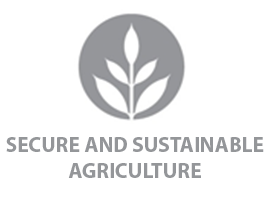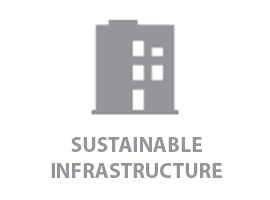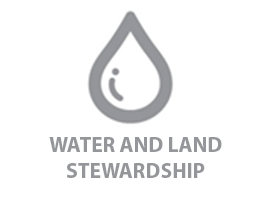iCOVER Project
Research Menu
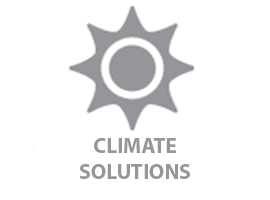 Current
Current
Funded
iSEE Work
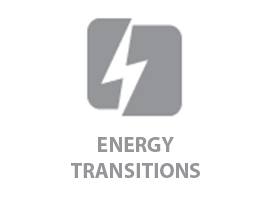 Current
Current
Funded
iSEE Work
Current
Funded
iSEE Work
Current
Funded
iSEE Work
Current
Funded
iSEE Work
 Project Overview
Project Overview
![]() The iCOVER (Innovated Cover-crop Opportunity, Verification, and Economy stimulating technology for underserved farmers using Robotics) Project fits into iSEE’s Secure & Sustainable Agriculture research theme. In December 2022, it received $4,999,999 from the USDA’s Partnerships for Climate-Smart Commodities program.
The iCOVER (Innovated Cover-crop Opportunity, Verification, and Economy stimulating technology for underserved farmers using Robotics) Project fits into iSEE’s Secure & Sustainable Agriculture research theme. In December 2022, it received $4,999,999 from the USDA’s Partnerships for Climate-Smart Commodities program.
 Cover cropping is hugely beneficial to farmers and the environment by ensuring more carbon in the soil year-round, keeping nutrients where they belong and out of the atmosphere. But there are three major bottlenecks in cover-crop adoption: high cost and hassle of planting; slow and expensive soil carbon measurements; and low return on investment for farmers.
Cover cropping is hugely beneficial to farmers and the environment by ensuring more carbon in the soil year-round, keeping nutrients where they belong and out of the atmosphere. But there are three major bottlenecks in cover-crop adoption: high cost and hassle of planting; slow and expensive soil carbon measurements; and low return on investment for farmers.
“iCOVER will scale up autonomous farming and sensing technologies to help reduce the cost and labor burden of cover crop planting, to enable accurate, rapid, low-cost soil measurements, and to explore the market linkages for climate-smart benefits to a diversity of farmers,” said Lead Investigator Girish Chowdhary.
At sites in Alabama, Illinois, Indiana, Missouri, and Iowa, the team plans to scale up robotic cover-crop planting from 1,000 acres in Year 1 to 20,000 in Year 4 — bringing the cost to less than $10 per acre. Additionally, the team will work with Tuskegee, a Historically Black land-grant university, to enable robotic, high-resolution measurements of soil carbon and to create markets for climate-smart projects for minority, underserved farmers growing specialty crops and animal products.
Project News
- Summer 2024 Progress Update
- Learn more about iCOVER with our FAQ!
- iSEE Helps Secure USDA Funding for iCOVER Project
From Lead Investigator Girish Chowdhary:
- The goal of this project is to scale up cover-crop planting across the Midwest using robotic technologies, which includes drones and ground robots. “We have a plan for robotic planting of over 2,000 acres this year,” Chowdhary said. “The robots are in place, drone operators have been engaged, and acres are being signed up.”
- The team applied recently for a $2M, five-year subaward on a U.S. Department of Energy (DOE) Bioenergy Technologies Office (BETO) project; DOE has yet to make awards on this call for proposals.
- The team demonstrated its technological advances during the I-FARM Farm of the Future Field Day in 2023.

CHOWDHARY
Why are cover crops important to climate-smart agriculture? How does iCOVER’s work make it easier for farmers to plant cover crops?
Lead Investigator Girish Chowdhary answers these questions and more in our Frequently Asked Questions.

A robot plants cover crops during the summer growing season for corn. Credit: University of Illinois Urbana-Champaign

CHOWDHARY
The U.S. Department of Agriculture (USDA) recently announced that it is funding a new project led by the University of Illinois Urbana-Champaign that will address major obstacles to adoption of cover crops in the United States.
Titled “iCOVER: Innovated Cover-crop Opportunity, Verification, and Economy stimulating technology for underserved farmers using Robotics,” this $4,999,999, four-year project is funded through the USDA’s Partnerships for Climate-Smart Commodities program and was facilitated through the Institute for Sustainability, Energy, and Environment (iSEE) at Illinois. The project will scale up robotic cover crop planting and verification of soil carbon through innovative radiological robotic sensing technologies, creating markets for climate-smart products for minority underserved farmers growing specialty crops and animal products.
The iCOVER Primary Investigator is Girish Chowdhary, Associate Professor of Agricultural & Biological Engineering and Computer Science. Other U of I project members include Co-PI Angela Di Fulvio, Assistant Professor of Nuclear, Plasma, and Radiological Engineering (NPRE), and Shadi Atallah, Associate Professor of Agricultural & Consumer Economics. Chowdhary, Di Fulvio, and Atallah are all part of the Center for Digital Agriculture (CDA), National Center for Supercomputing Applications (NCSA). External partners include Tuskegee University, EarthSense, Inc., Archer Daniels Midland (ADM), Corteva, and Indigo Ag.
iCOVER in the Media
Feb. 14, 2023: FarmWeekNow >>>
Jan. 13, 2023: The News-Gazette’s Illini Insider >>>
The Team
Principal Investigator and co-PIs
- PI: Girish Chowdhary, Associate Professor of Agricultural & Biological Engineering and Computer Science
His departmental page >>>
His lab page >>> - Co-PI: Angela Di Fulvio, Assistant Professor of Nuclear, Plasma, and Radiological Engineering
Her departmental page >>> - Co-PI: Shadi Atallah, Associate Professor of Agricultural & Consumer Economics
- His departmental page >>>
His Center for the Economics of Sustainability page >>>
Operating team: Faculty, Scientists, Postdocs, and Students (in group photo unless otherwise noted)
- Coming soon!
Institutional and Corporate Partners
- Tuskegee University
- EarthSense, Inc.
- Archer Daniels Midland (ADM)
- Corteva
- Indigo Ag
Publications & Presentations
(iSEE project members’ names in bold):
- Coming soon!!
